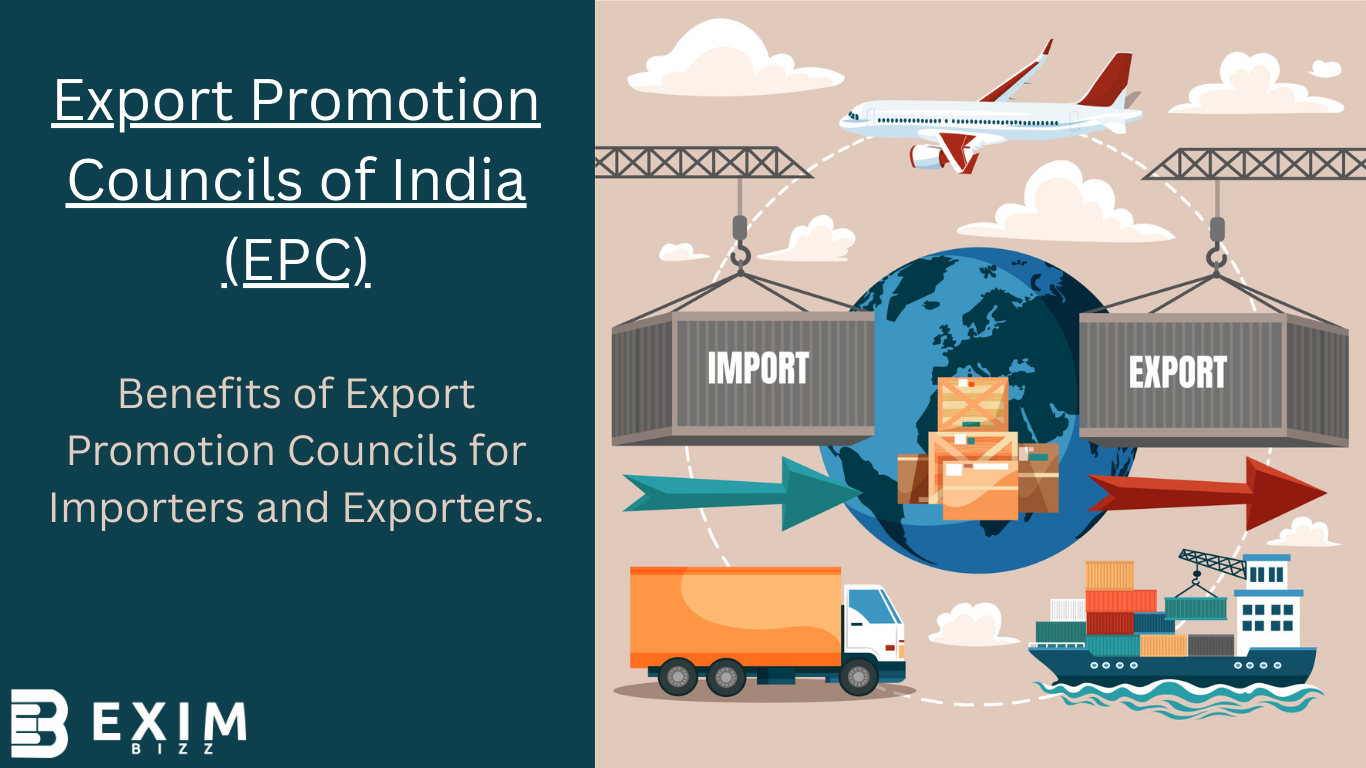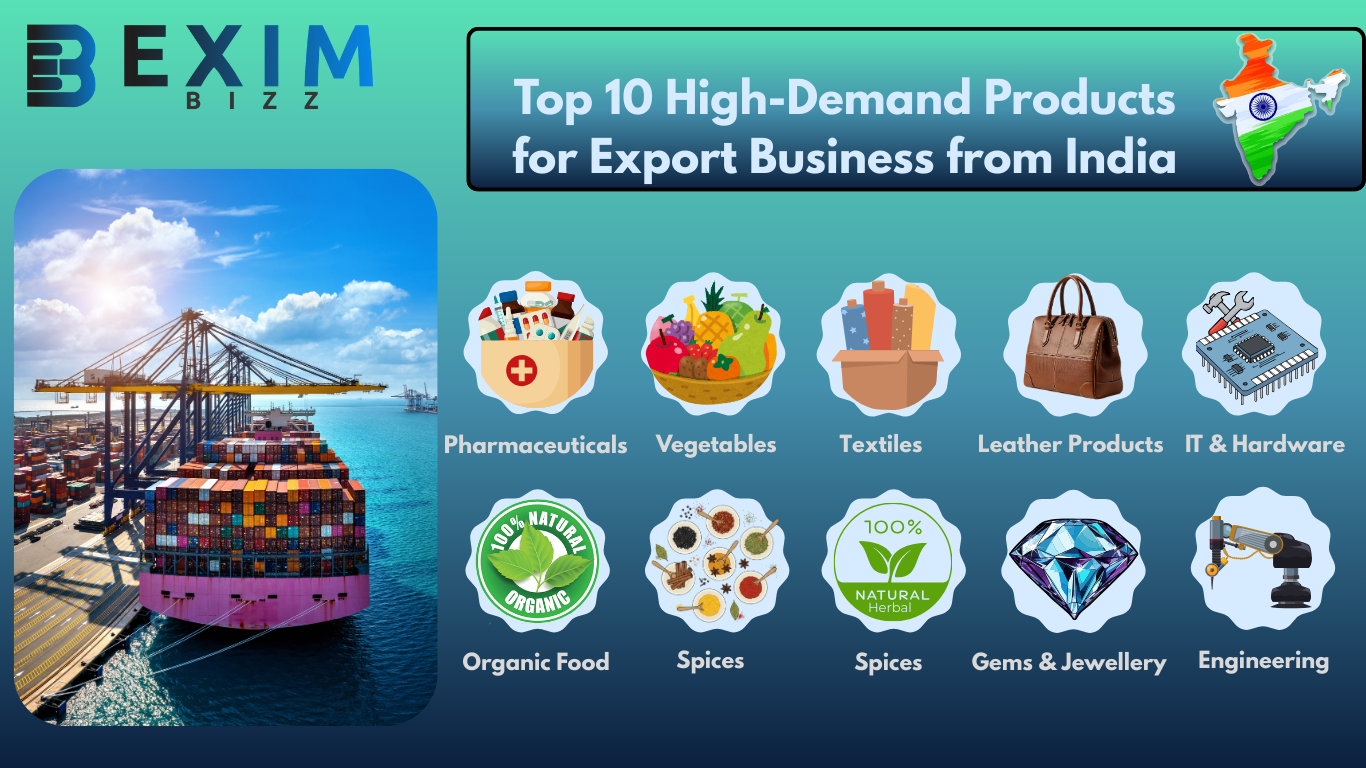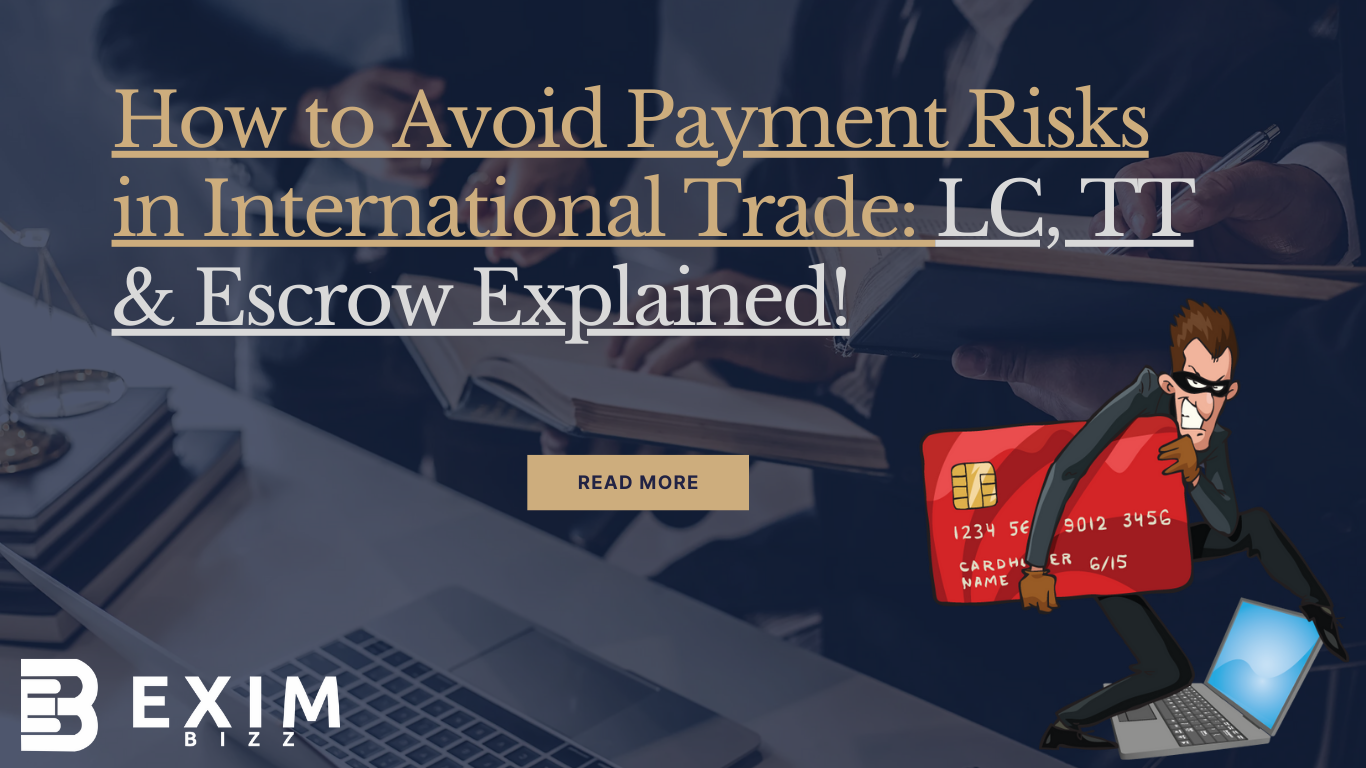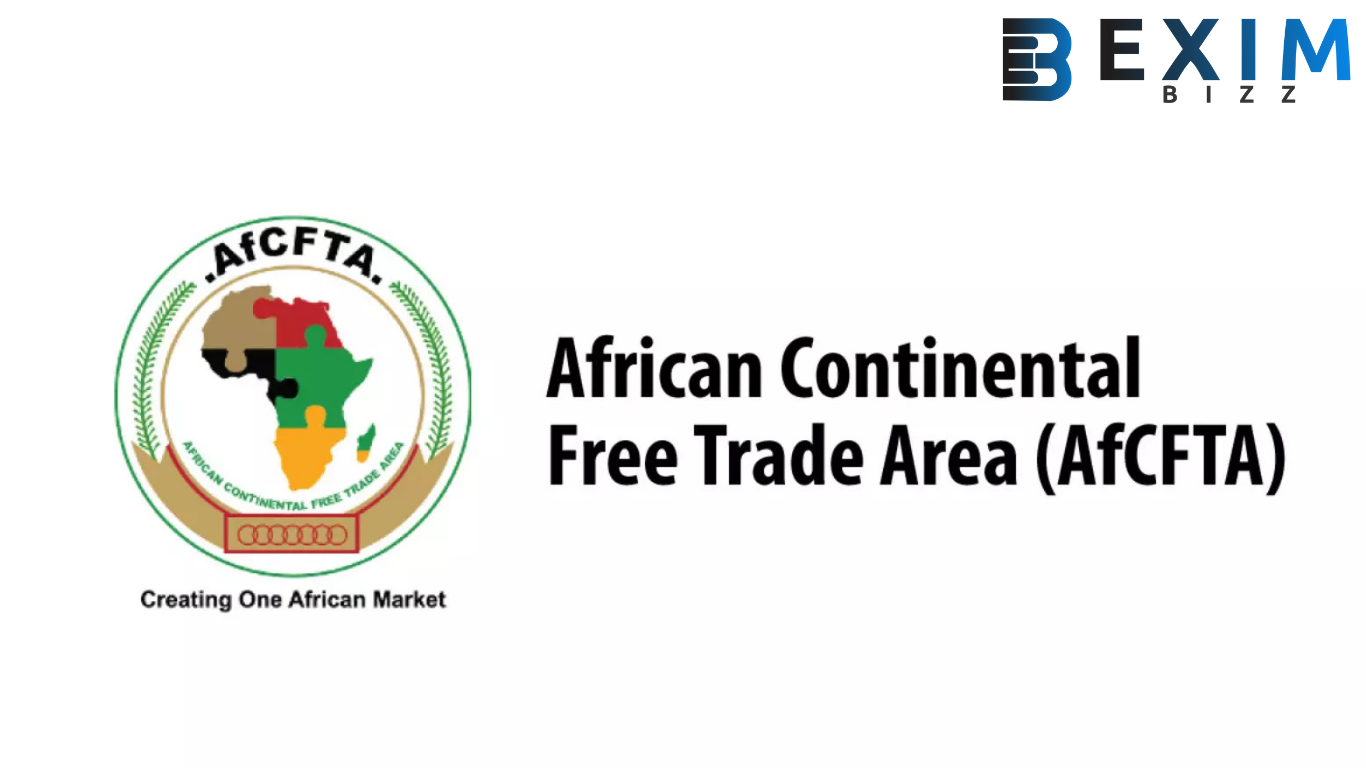Export Promotion Councils of India: A Catalyst for Global Trade
In today’s interconnected global economy, international trade plays a pivotal role in driving economic growth and development. For countries like India, with its diverse industries and vast production capabilities, participating in global trade is not just an option but a necessity. To facilitate this process, the Export Promotion Councils (EPCs) of India have emerged as key institutions that promote exports and imports, helping businesses navigate the complexities of international trade.
What Are Export Promotion Councils (EPCs)?
Export Promotion Councils (EPCs) are apex bodies established by the Government of India under the Ministry of Commerce and Industry to promote and develop specific sectors of the economy for export purposes. These councils act as intermediaries between the government and exporters, providing a platform for collaboration, advocacy, and support.
Currently, there are 30 Export Promotion Councils in India, each catering to different industries such as textiles, engineering goods, pharmaceuticals, handicrafts, gems & jewelry, and more. Additionally, there are 6 Commodity Boards that focus on promoting specific agricultural commodities.
List of 30 Export Promotion Councils (EPCs):
- Apparel Export Promotion Council (AEPC)
- Basic Chemicals, Pharmaceuticals and Cosmetics Export Promotion Council (CHEMEXCIL)
- Cashew Export Promotion Council of India (CEPCI)
- Carpet Export Promotion Council (CEPC)
- Confederation of Indian Industry (CII) – Trade Facilitation Centre
- Council for Leather Exports (CLE)
- Cotton Textiles Export Promotion Council (TEXPROCIL)
- Directorate General of Foreign Trade (DGFT) – Supporting Role
- Electronics and Computer Software Export Promotion Council (ESC)
- Engineering Export Promotion Council (EEPC)
- Export Inspection Council (EIC)
- Federation of Indian Export Organisations (FIEO)
- Footwear Design & Development Institute (FDDI)
- Gems & Jewellery Export Promotion Council (GJEPC)
- Handloom Export Promotion Council (HEPC)
- Handicrafts Export Promotion Council (HEPC)
- Indian Institute of Packaging (IIP)
- Indian Pharmaceutical Alliance (IPA)
- Marine Products Export Development Authority (MPEDA)
- Minerals and Metals Export Promotion Council (MMTC)
- Powerloom Development and Export Promotion Council (PDEPC)
- Project Exports Promotion Council of India (PEPC)
- Ready Made Garments Export Promotion Council (RMGEC)
- Services Export Promotion Council (SEPC)
- Shellac & Forest Products Export Promotion Council (SHEFEXIL)
- Sports Goods Export Promotion Council (SGEPC)
- Tea Board of India (TBI)
- Tobacco Board (TB)
- Wool and Woollen Manufacturers Export Promotion Council (WWMPEC)
- Coir Board
List of 6 Commodity Boards:
- Coffee Board
- Rubber Board
- Spices Board
- Tobacco Board
- Tea Board
- Coir Board
These councils and boards work closely with the Directorate General of Foreign Trade (DGFT), which formulates India’s foreign trade policies, to ensure smooth operations and compliance with regulations.
Benefits of Export Promotion Councils for Importers and Exporters
- Market Research and Intelligence
One of the primary functions of EPCs is to provide market research and intelligence reports to their members. This includes insights into global demand trends, competitor analysis, potential markets, and regulatory requirements. By leveraging these resources, businesses can make informed decisions about where to export or import from, reducing risks associated with entering new markets.
For instance, if an Indian textile manufacturer wants to explore opportunities in Europe, the Cotton Textiles Export Promotion Council (TEXPROCIL) can offer detailed information on consumer preferences, tariffs, and non-tariff barriers in European countries.
- Financial Assistance and Incentives
EPCs play a crucial role in disseminating information about various financial incentives offered by the Indian government to boost exports. These include schemes like:
- Merchandise Exports from India Scheme (MEIS)
- Remission of Duties and Taxes on Exported Products (RoDTEP)
- Interest Equalization Scheme
By guiding exporters through these schemes, EPCs help them reduce costs and improve competitiveness in the international market. Similarly, importers benefit from understanding duty exemptions and other benefits available under bilateral trade agreements.
- Trade Fairs and Exhibitions
Participating in international trade fairs and exhibitions is one of the most effective ways to showcase products and connect with buyers worldwide. EPCs organize and sponsor participation in major trade events both within India and abroad. For example, the Gems & Jewellery Export Promotion Council (GJEPC) organizes the renowned India International Jewellery Show (IIJS), attracting thousands of buyers globally.
Such platforms enable small and medium enterprises (SMEs) to access international markets without significant investments in marketing and logistics.
- Capacity Building and Training
Many businesses, especially SMEs, lack the expertise needed to comply with international standards and procedures. EPCs conduct workshops, seminars, and training programs to educate exporters and importers on topics such as:
- Quality control and certification
- Documentation and legal formalities
- Digital tools for e-commerce and supply chain management
This capacity-building initiative empowers businesses to meet global benchmarks and operate efficiently in the international arena.
- Networking Opportunities
EPCs serve as hubs for networking among industry stakeholders, including manufacturers, traders, policymakers, and foreign buyers. Their regular meetings, conferences, and business delegations foster relationships that lead to long-term partnerships. For instance, during buyer-seller meets organized by EPCs, Indian exporters can directly interact with overseas clients, negotiate deals, and secure orders.
- Policy Advocacy
As representatives of their respective industries, EPCs advocate for favorable trade policies at national and international levels. They engage with the government to address challenges faced by exporters, such as high freight charges, complex documentation, or restrictive regulations. they also collaborate with foreign governments and trade bodies to resolve problems related to market access and trade barriers.
- Support During Disputes
International trade often involves disputes over payments, quality issues, or contract breaches. EPCs assist their members in resolving such conflicts through arbitration, mediation, or legal recourse. Their guidance ensures that businesses avoid losses and maintain trust with international partners.
How Do EPCs Benefit Importers?
While EPCs primarily focus on promoting exports, they also indirectly assist importers by creating a robust ecosystem for global trade. Here’s how importers benefit:
- Access to Reliable Suppliers: EPCs maintain databases of verified exporters, making it easier for importers to find trustworthy suppliers in India.
- Knowledge Sharing: Importers gain insights into Indian regulations, taxes, and customs procedures, ensuring smoother transactions.
- Promotion of Bilateral Trade: Through trade missions and collaborations, EPCs help strengthen ties between Indian exporters and foreign importers, fostering mutually beneficial relationships.
Conclusion
The 30 Export Promotion Councils and 6 Commodity Boards of India are instrumental in enhancing the country’s position as a global trading powerhouse. By offering comprehensive support—from market research and financial assistance to capacity building and policy advocacy—they empower businesses to thrive in the competitive world of international trade.
Whether you’re an exporter looking to expand your reach or an importer seeking reliable partners, these organizations provide the tools and resources necessary to succeed. As India continues to integrate further into the global economy, the role of EPCs and Commodity Boards will only become more critical in shaping the future of trade.
So, if you’re involved in importing or exporting, don’t hesitate to reach out to the relevant EPC or Commodity Board for your industry. Their expertise and network could be the key to unlocking new opportunities and achieving sustainable growth in the global marketplace!
If you found this blog helpful, feel free to share it with others who might benefit from learning about India’s export promotion ecosystem! 🌍✨






